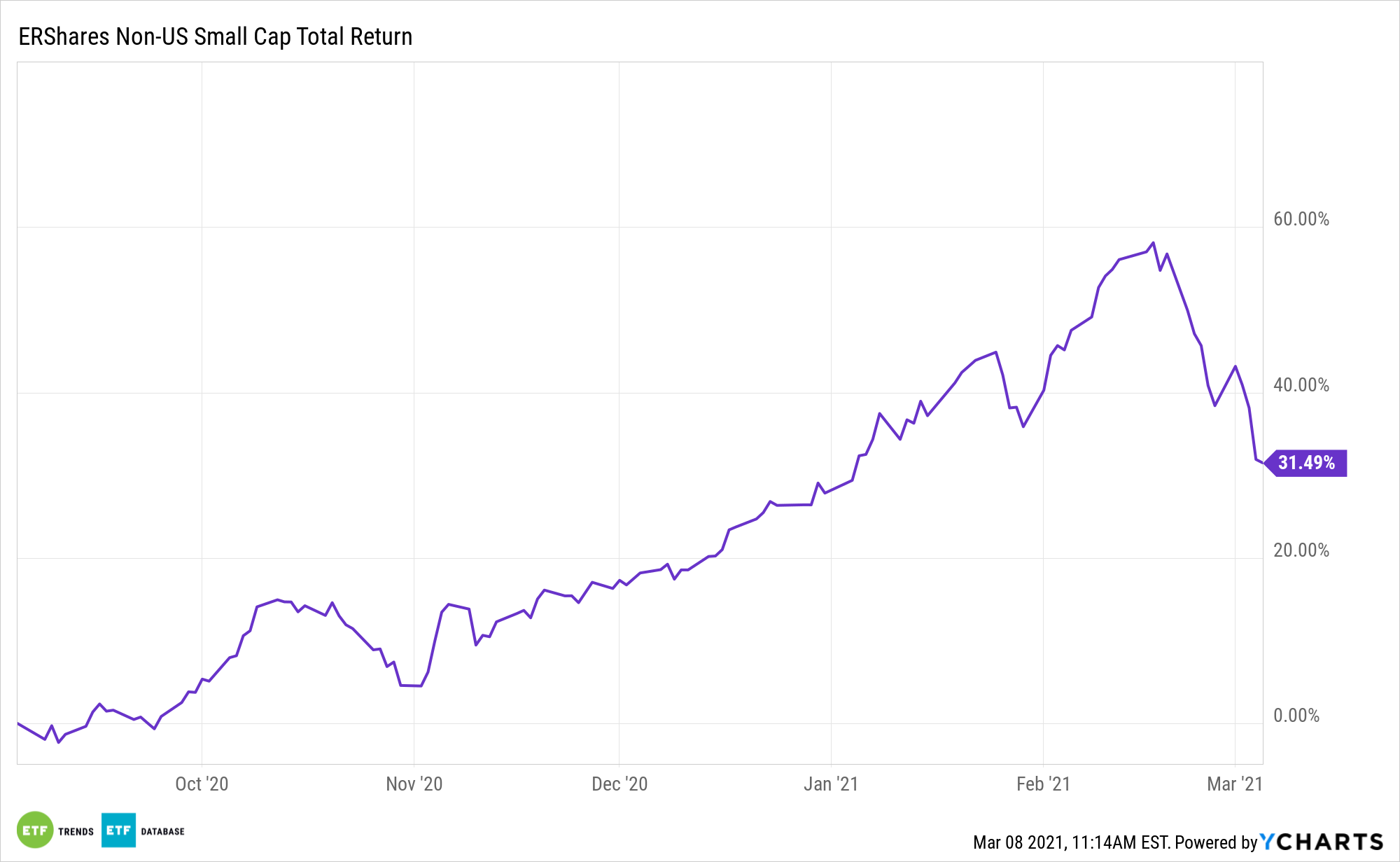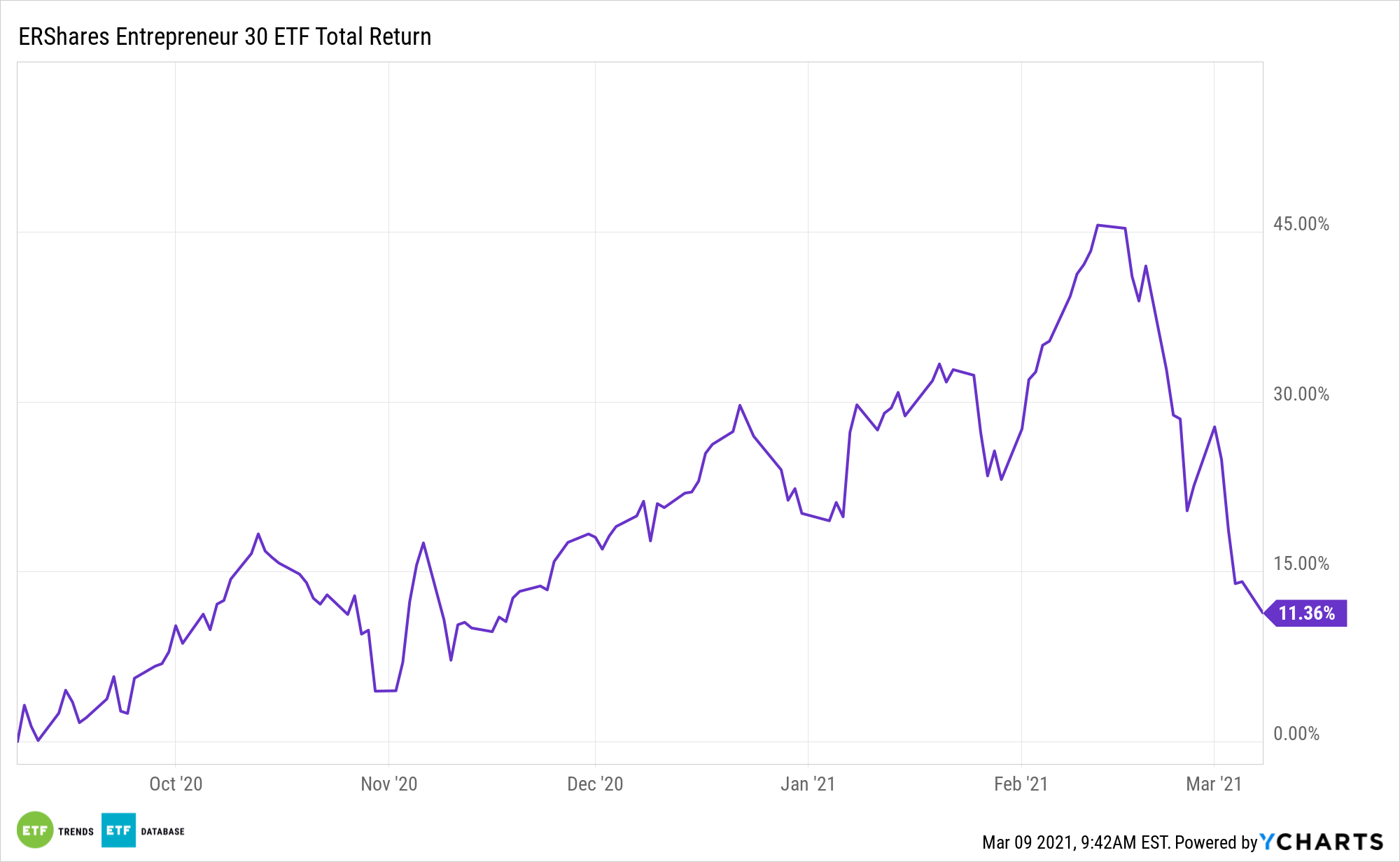The ERShares Entrepreneurs ETF (ENTR) is a fund investors will want to consider this year, particularly those looking for a fresh take on factor-based strategies.
ENTR tries to reflect the performance of the Entrepreneur 30 Index, which is comprised of 30 U.S. companies with the highest market capitalizations and composite scores based on six criteria referred to as entrepreneurial standards. ENTR primarily invests in US Large Cap companies that meet the thresholds embedded in their proprietary Entrepreneur Factor (EF).
The exchange traded fund is a relevant consideration at a time when investment decisions are changing due to this current global health crisis. As more people are choosing or forced to stay home, work in a home office, and shop from their coaches, the recent short-term shifts could lay the groundwork for long-term ramifications.

Multiple Tailwinds for the High-Flying ‘ENTR’
ENTR can capitalize as many firms are changing the way they run businesses. Companies that are more nimble and capable of capitalizing on this increasingly digital age have stood out.
Furthermore, more companies are growing more efficient in handling sales through an online outlet, potentially finding new ways to limit costs and maximize their businesses. This increased proficiency could further weigh on sectors like traditional brick-and-mortar retail.
ERShares’ ETF “incorporates a bottom-up investment orientation, powered by artificial intelligence (AI), that stands above other investment factors such as: momentum, sector, growth, value, leverage, market cap (size) and geographic orientation. Moreover, with the aid of AI and Thematic Research, ERShares incorporates a macro-economic, top-down approach that integrates changing investment flows, innovation entry points, sector growth and other characteristics into a dynamic, global perspective mode,” according to ETFdb.com.

